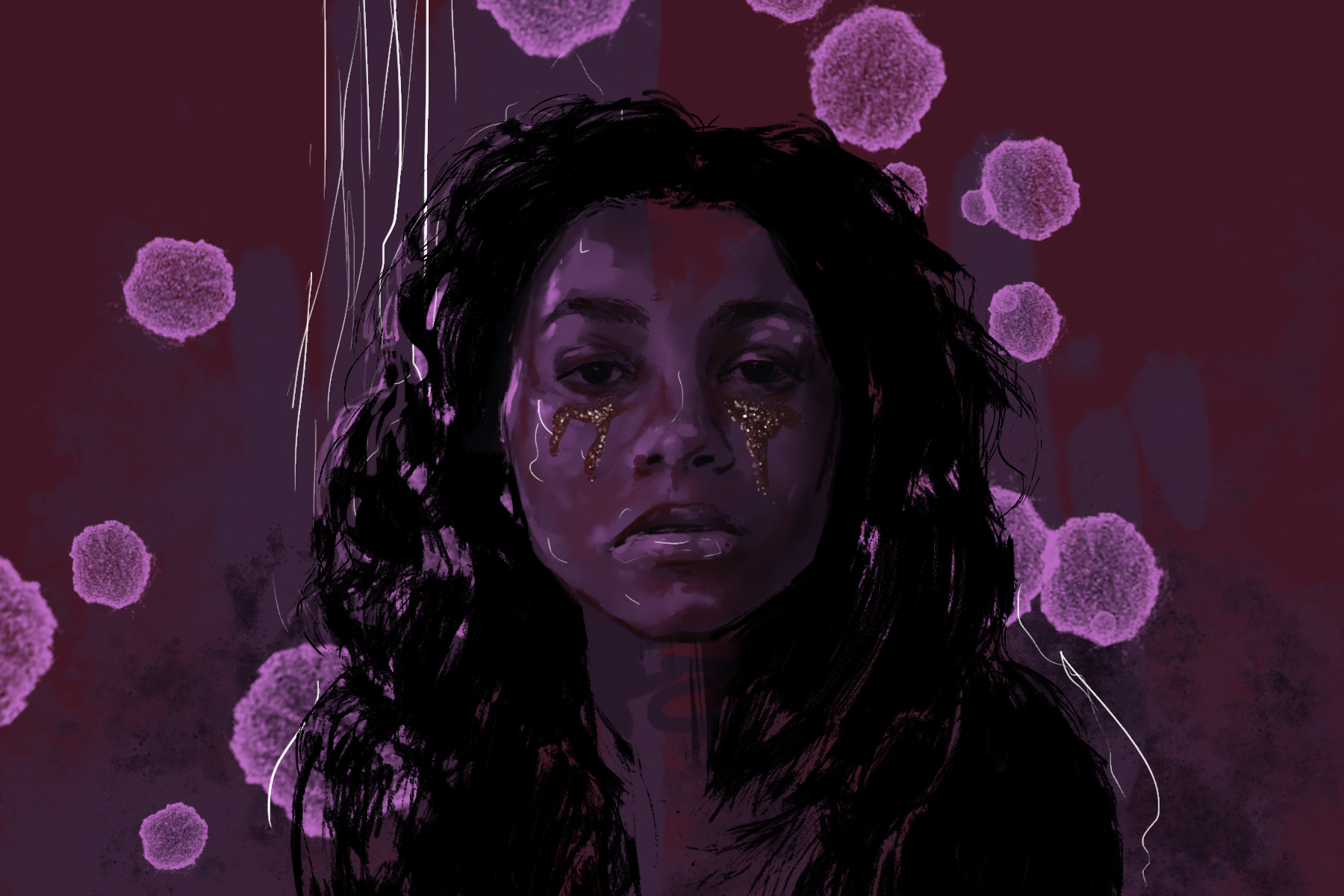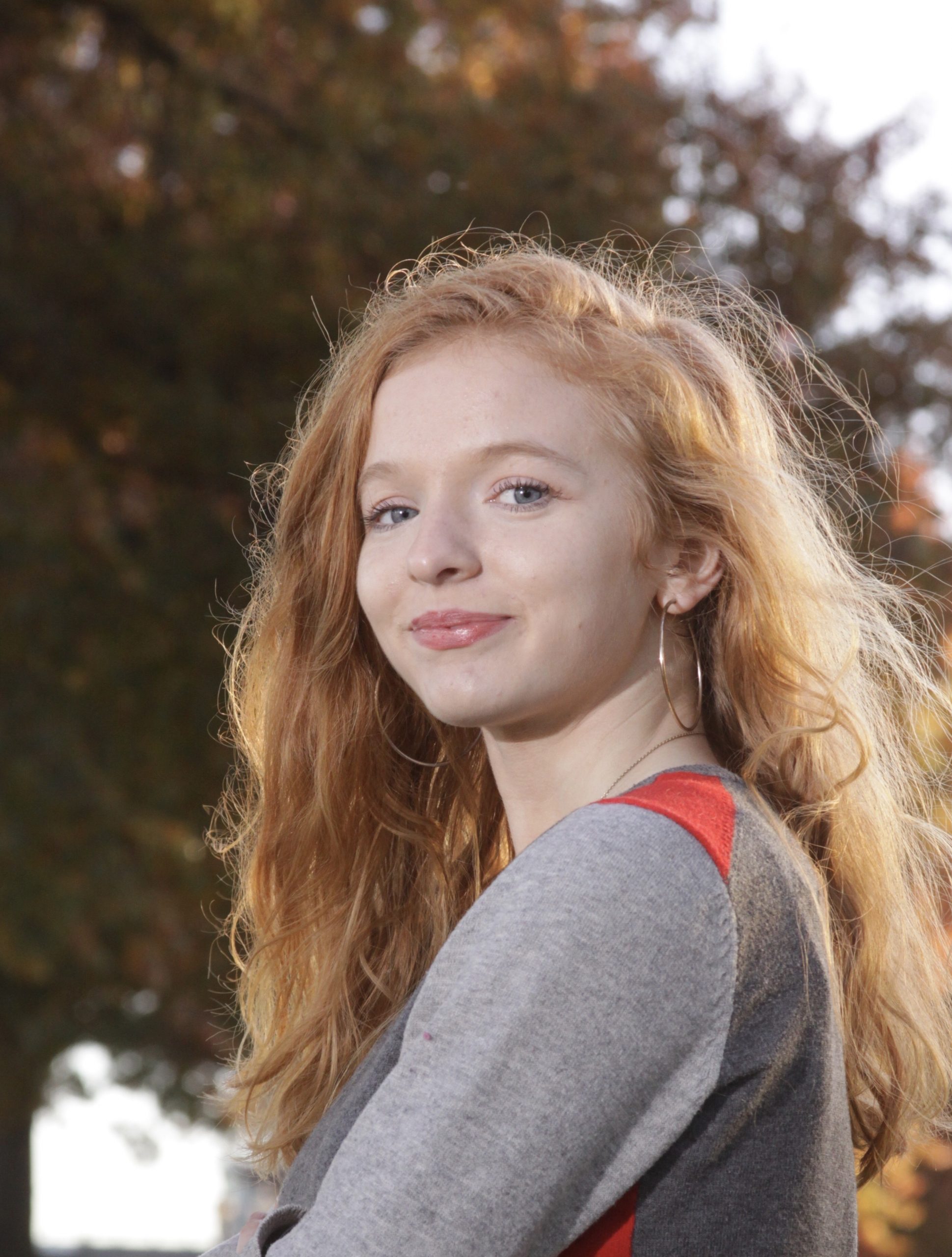Loosely based on the Israeli miniseries with the same name, “Euphoria” exhibits the trials and errors of the modern high schooler, focusing on 17-year-old drug addict Rue (Zendaya). Social media, influence, perception and activism all play a significant role in the typical Gen Z life, and “Euphoria” does not shy away when it comes to exposing not only the celebration of such a fast-paced world, but the overwhelming anxiety that comes with it. The specially released episode— shot and produced during quarantine — is by far the best of teen television, dismantling the drama of entertainment so a real conversation can break down the struggles of adolescence.
Normally full of throbbing light, an array of color and flamboyant costumes and makeup, “Euphoria” strips away to what is real in its specially released episode titled “Trouble Don’t Last Always.” The entire episode is set in a diner on Christmas Eve, almost completely featuring one continuous conversation between Rue and her sponsor, Ali (Colman Domingo).
“I feel like I’ve found, like, this amazing balance where I’m like happy and healthy and I’m not looking to anybody else for that happiness, you know?” Rue tells Ali in the beginning of the episode, even though the opening shot is of Rue snorting coke in the bathroom.
“We’re starting to see a little bit of Rue’s unreliability as a narrator. This episode is kinda starting to sow the seeds that Rue’s perspective is very much Rue’s perspective, and she’s not always accurate in her retelling of things,” said Levinson in an interview with HBO. The complexity of Rue’s character is that she is limited in her ability to empathize with other characters’ emotions because she is so heavily overwhelmed by her own.
Even so, the specially released episode of “Euphoria” dismantles the layers of Rue in a way that also reconstructs her core values. The simplicity of a one-on-one conversation with the addition of Domingo’s raw performance crafts a masterful intervention that leaves the hearts of the audience aching, gripped with the brutal truth not only of the fictional characters, but perhaps the people they know in real life.
“It forced me to upend the entire structure of the series, and look at these characters from an entirely different perspective in service of the emotional reality of where Rue is in her life,” said Levinson.
“Rue is in a very vulnerable place. She’s trying her best to convince herself that she has something figured out. Rue does not have it figured out. Rue does not know what she’s doing. And I think the only person that can cut through the noise and truly understand her is Ali,” said Zendaya in the same HBO interview.
While it’s conventional for television and media to portray teenagers as confused, agitated and angsty, it’s not so common for the usually action-packed plots to leave space for the characters, space that allows the outsiders looking in to truly understand where their deeper flaws come from.
“Trouble Don’t Last Always” unravels the complexities of Rue’s reasoning for a relapse, and how it is self-destructive to her own values. One of the major points brought up in the scene is Rue’s tendency to make bad choices or say evil things, like threatening to kill her mom. However, Ali counters Rue’s unforgiveness by telling her that even though she may say or do terrible things, she continues to value goodness; Rue’s fight to make up for those bad intentions makes her a good person.
But it’s not only Rue that we begin to understand better, but Ali as well.
“He lets out that he wasn’t as strong as Rue may think he is. That also — that he’s got some darkness to him as well,” said Domingo.
Unlike most teen shows, like “Riverdale,” “The 100” or “13 Reasons Why,” “Euphoria” portrays a supportive adult father-like figure who is complex and thus can carry the weight that Rue holds. He is not only willing to fight her battle, but to analyze it without judgment — something that is lacking when society looks at substance abuse.
Ali addresses this very issue directly, agreeing that as a society, “No one gives a s–t about a drug addict.” However, he tells Rue that she has to believe not just in herself, but something greater than herself.
“You’ve got to believe in the poetry because everything else in your life will fail you, including yourself,” he tells her in the diner. Something that is refreshing about the episode is its ability to unpack not only drug addiction, but Rue’s identity as a teenager in the 21st century where progressivism is the trend, and a purpose is required of its younger generation.
Another topic that is discussed in “Euphoria” is race and the implications of a movement fighting racism. As a sort of commentary on the reactions throughout 2020, from politicians and the virus to social media and protests, Ali breaks down how “revolutions are no longer radical,” giving examples of high-end companies like Nike seemingly endorsing the Black Lives Matter movement, but not truly doing anything about it.
“There’s so many revolutions that everybody’s revolutionary,” Ali remarks. He acknowledges the beauty of the revolutions, but also how so many of them can disengage their actual meaning. “The revolutions are fought and won so damn fast that the people don’t even have time to implement change.”
Advertisement and social media are intertwined, and although social media is often the forefront of pushing people to seek change, it can also be its own worst enemy. Saying that you believe in something is not the same as doing something about it, Ali argues, and his claim is applicable not only to the social movement of BLM and how teens utilize media for bringing people together, but Rue’s attitude toward her addiction.
“To tell you the truth, drugs are probably the only reason I haven’t killed myself,” Rue finally admits toward the end of the show, cutting through all of the powerful, inspiring words of Ali.
Again, the audience is brought back to the terrifying reality of Rue. The one thing that is tearing her apart is also holding her together; it’s a toxic relationship, but like Ali argues, there is a difference between saying that Rue wants to get better and actually doing it. He pushes Rue to see how her addiction not only affects her own mind and body, but her family’s as well. He asks her how she wants to be remembered by her sister and mother, pushing Rue to find a thread of purpose — to live life for others, and to live for the chance that someday she could find happiness.
“I have faith in you,” Ali says at the end of the episode, and it is the underlying heartbeat of the entire scene.
“Euphoria” changes the typical stereotypes of a teen show so that it is not simply entertainment, but an artwork that forces its audience to analyze its real issues that impact everyday people. Anxiety, depression, drug abuse, sexuality, racism and identity are all key topics that have surrounded 2020. Levinson’s surprise release of an episode of a highly-anticipated season acknowledges the harsh truths many have had to face throughout the year. A long, deep conversation is well-needed, and Levinson gives us just that — and that under all the pretend glam, everyone deserves a little faith.

















